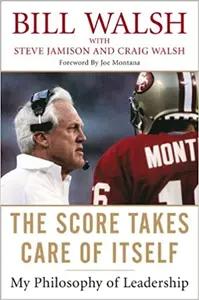The 7 Habits of Highly Effective People: Restoring the Character Ethic
By Stephen Covey
Category
Self HelpRecommended by
"The 7 Habits of Highly Effective People" is a timeless self-help book written by Stephen Covey. It presents seven powerful habits that, when adopted and applied, can lead to personal and professional success.
Covey begins by emphasizing the importance of being proactive and taking responsibility for one's own life and choices. He suggests focusing on principles, rather than on quick fixes or techniques, as the foundation for long-term effectiveness.
The second habit Covey discusses is beginning with the end in mind. He encourages readers to develop a personal mission statement and align their actions and decisions with their values and long-term goals.
Habit three is putting first things first. Covey introduces the concept of time management quadrants and advises prioritizing activities based on importance and urgency. He highlights the significance of maintaining a balance between work and personal life.
Habit four focuses on thinking win-win. Covey encourages readers to seek mutually beneficial solutions in all aspects of life, fostering collaboration, and building strong relationships.
The fifth habit deals with the crucial aspect of communication: seeking first to understand, then to be understood. Covey emphasizes the importance of active listening and empathy in improving relationships and achieving effective communication.
Covey's sixth habit is synergizing, which involves leveraging differences and working together to create innovative and powerful outcomes. He presents the idea that the whole is greater than the sum of its parts.
The final habit Covey explores is continuous self-improvement or sharpening the saw. He emphasizes the importance of self-renewal through physical, mental, emotional, and spiritual growth, ultimately leading to improved effectiveness.
Through captivating stories, insightful examples, and practical advice, Covey's "The 7 Habits of Highly Effective People" offers a roadmap for personal and professional growth. It inspires readers to take control of their lives, build strong relationships, and achieve sustainable success by developing these seven powerful habits.
Covey begins by emphasizing the importance of being proactive and taking responsibility for one's own life and choices. He suggests focusing on principles, rather than on quick fixes or techniques, as the foundation for long-term effectiveness.
The second habit Covey discusses is beginning with the end in mind. He encourages readers to develop a personal mission statement and align their actions and decisions with their values and long-term goals.
Habit three is putting first things first. Covey introduces the concept of time management quadrants and advises prioritizing activities based on importance and urgency. He highlights the significance of maintaining a balance between work and personal life.
Habit four focuses on thinking win-win. Covey encourages readers to seek mutually beneficial solutions in all aspects of life, fostering collaboration, and building strong relationships.
The fifth habit deals with the crucial aspect of communication: seeking first to understand, then to be understood. Covey emphasizes the importance of active listening and empathy in improving relationships and achieving effective communication.
Covey's sixth habit is synergizing, which involves leveraging differences and working together to create innovative and powerful outcomes. He presents the idea that the whole is greater than the sum of its parts.
The final habit Covey explores is continuous self-improvement or sharpening the saw. He emphasizes the importance of self-renewal through physical, mental, emotional, and spiritual growth, ultimately leading to improved effectiveness.
Through captivating stories, insightful examples, and practical advice, Covey's "The 7 Habits of Highly Effective People" offers a roadmap for personal and professional growth. It inspires readers to take control of their lives, build strong relationships, and achieve sustainable success by developing these seven powerful habits.
Share This Book 📚
More Books in Self Help

Deep Work
Cal Newport

How To Win Friends and Influence People
Dale Carnegie

The Upside of Stress
Kelly McGonigal

Atomic Habits
James Clear

Awakening Joy
James Baraz

Awareness
Anthony De Mello

Maybe You Should Talk To Someone
Lori Gottlieb

The One Thing
Gary Keller

The Untethered Soul
Michael A. Singer

Think Like a Monk
Jay Shetty

Think and Grow Rich
Napoleon Hill

Triumphs of Experience
George Vaillant

A Curious Mind
Brian Grazer

A Mind at Home with Itself
Byron Katie

A Second Chance
Catherine Hoke

Absolute Tao
Osho

Against Empathy
Paul Bloom

As A Man Thinketh
James Allen

Be the Person You Want to Find
Cheri Huber

Being Wrong
Kathryn Schulz

Daring Greatly
Brene Brown

Direct Truth
Kapil Gupta

Dream Yoga
Andrew Holecek

Facing Codependence
Pia Mellody

Facing Love Addiction
Pia Mellody

Freedom from the Known
Jiddu Krishnamurti

Happiness
Frederic Lenoir

Happy Money
Elizabeth Dunn

Hell Yeah or No
Derek Sivers

How to Stop Worrying and Start Living
Dale Carnegie
Popular Books Recommended by Great Minds 📚

Creativity, Inc.
Ed Catmull

Destined For War
Graham Allison

Man's Search for Meaning
Viktor Frankl

The Courage To Be Disliked
Ichiro Kishimi

Homo Deus
Yuval Noah Harari

Security Analysis
Benjamin Graham

Atlas Shrugged
Ayn Rand

Foundation
Isaac Asimov

Zero to One
Peter Thiel

Measure What Matters
John Doerr

Guns, Germs, and Steel
Jared Diamond

Masters of Doom
David Kushner

The Innovators Dilemma
Clayton Christensen

Titan
Ron Chernow

The Dao of Capital
Mark Spitznagel

American Kingpin
Nick Bilton

Trailblazer
Marc Benioff

Influence
Robert Cialdini

The Prince
Nicolo Machiavelli

The Ascent of Money
Niall Ferguson

High Output Management
Andrew Grove

Against The Gods
Peter Bernstein

Extreme Ownership
Jocko Willink

The Internet of Money Volume 1
Andreas Antonopolous

Sapiens
Yuval Noah Harari

The Checklist Manifesto
Atul Gawande

Scale
Geoffrey West

The Psychology of Money
Morgan Housel

The Score Takes Care of Itself
Bill Walsh

The Hitchhikers Guide to the Galaxy
Douglas Adams
